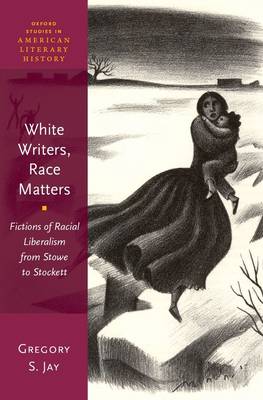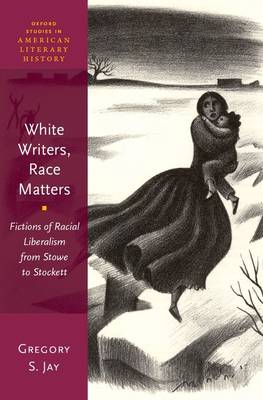
Bedankt voor het vertrouwen het afgelopen jaar! Om jou te bedanken bieden we GRATIS verzending (in België) aan op alles gedurende de hele maand januari.
- Afhalen na 1 uur in een winkel met voorraad
- In januari gratis thuislevering in België
- Ruim aanbod met 7 miljoen producten
Bedankt voor het vertrouwen het afgelopen jaar! Om jou te bedanken bieden we GRATIS verzending (in België) aan op alles gedurende de hele maand januari.
- Afhalen na 1 uur in een winkel met voorraad
- In januari gratis thuislevering in België
- Ruim aanbod met 7 miljoen producten
Zoeken
€ 177,45
+ 354 punten
Omschrijving
What explains the enduring popularity of white-authored protest fiction about racism in America? How have such books spoken to the racial crises of their time, and why do they remain important in our own era? White Writers, Race Matters explores these questions and the controversies they raise by tracking this tradition in American literary history. Dating back to Uncle Tom's Cabin, the genre includes widely-read and taught works such as Huckleberry Finn and To Kill a Mockingbird along with period best-sellers now sometimes forgotten. This history also takes us to Hollywood, which regularly adapted them into blockbusters that spread their cultural influence further as well as incited debates over their politics. These novels strive to move readers emotionally toward ethical transformation and practical action. Their literary forms, styles and plots derive from the cultural work they intend to do in educating the minds and hearts of those who, in James Baldwin's words, "think they are white"--indeed, in making the social construction of that whiteness readable and thus more susceptible to reform. Each chapter provides a case study combining biography, historical analysis, close reading, and literary theory to map the significance of this genre and its ongoing relevance. This tradition remains vital because every generation must relearn the lessons of antiracism and formulate effective cultural narratives for transmitting intellectual and affective tools useful in fighting injustice.
Specificaties
Betrokkenen
- Auteur(s):
- Uitgeverij:
Inhoud
- Aantal bladzijden:
- 384
- Taal:
- Engels
- Reeks:
Eigenschappen
- Productcode (EAN):
- 9780190687229
- Verschijningsdatum:
- 29/12/2017
- Uitvoering:
- Hardcover
- Formaat:
- Genaaid
- Afmetingen:
- 160 mm x 239 mm
- Gewicht:
- 675 g

Alleen bij Standaard Boekhandel
+ 354 punten op je klantenkaart van Standaard Boekhandel
Beoordelingen
We publiceren alleen reviews die voldoen aan de voorwaarden voor reviews. Bekijk onze voorwaarden voor reviews.









